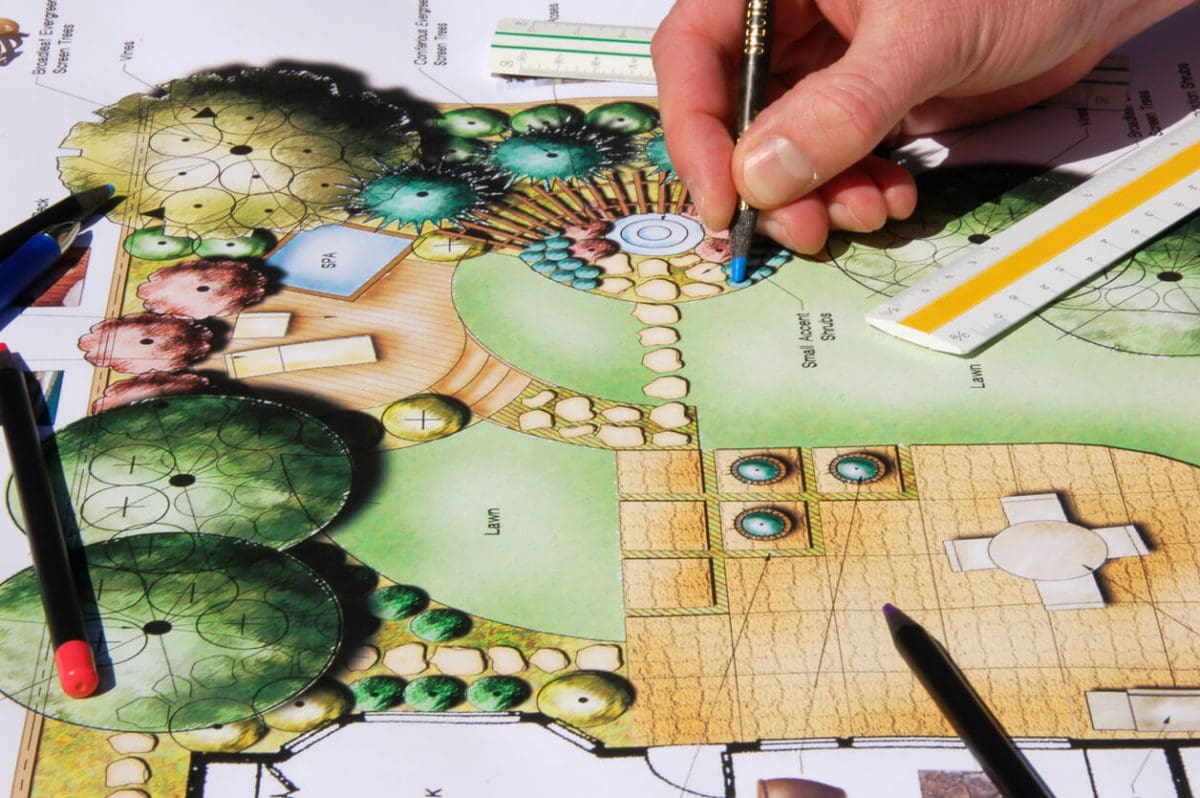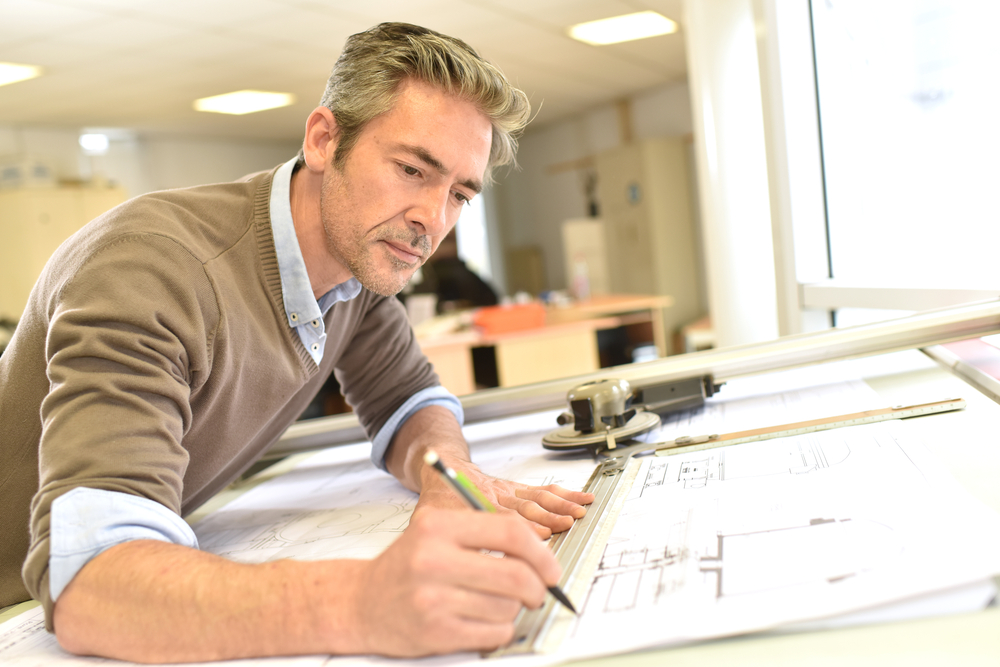Architect Interview Questions You Should Be Ready to Answer
Architect Interview Questions You Should Be Ready to Answer
Blog Article
Discover the Essential Skills and High Qualities Every Architect Need To Have
As an architect, you understand that success in your area surpasses simply technological skills. It has to do with blending creative thinking with functionality, fostering partnership, and taking care of projects successfully. Each high quality plays a critical duty in your capability to design areas that motivate and work well. However what are the particular abilities that can truly establish you apart? Allow's explore the vital characteristics every Architect need to cultivate to prosper in this ever-evolving occupation.
Creativity and Technology
Imagination and advancement are at the heart of architecture, driving the layout of rooms that inspire and operate flawlessly. As an architect, you'll require to think outside package, pressing limits to develop unique remedies for your customers. You'll regularly discover new products, techniques, and innovations to enhance your layouts. Accepting technology means remaining in advance of patterns while being versatile to alter.
You'll additionally attract motivation from different sources-- nature, art, and also day-to-day life can trigger fresh ideas. This capability to blend imagination with usefulness permits you to attend to complex problems, guaranteeing your layouts meet both aesthetic and useful requirements.
Strong Interaction Abilities
While creating exceptional areas requires creativity, strong communication skills are simply as critical for architects. You require to communicate your concepts clearly to customers, service providers, and employee. Paying attention is simply as vital; understanding your customer's vision aids you create designs that absolutely fulfill their requirements.
You'll usually need to clarify intricate principles in a manner that's easy to realize, whether you exist a proposal or discussing materials. Reliable interaction fosters cooperation, making certain everybody gets on the same web page throughout the project.
Structure relationships is important, too. When you develop depend on and connection, clients are more probable to share their concerns and responses, resulting in better outcomes.
Last but not least, do not take too lightly the power of body language and visual help. They can improve your message and make your presentations a lot more engaging. Strong communication abilities not only raise your styles yet also enhance your specialist relationships in the architectural world.
Technical Proficiency in Style Software Application
As you browse the ever-evolving globe of design, grasping layout software application comes to be important for converting your imaginative concepts right into tangible strategies. Acquainting yourself with programs like AutoCAD, Revit, and SketchUp will certainly not just enhance your style abilities but also enhance your operations. These tools allow you to develop detailed drawings, 3D models, and even simulations that can assist you envision and provide your concepts much more properly.
Being skilled in these software program applications likewise increases your collaboration with contractors and designers, as every person can work from the exact same digital foundation. Additionally, your capability to adapt to brand-new innovations will certainly maintain you competitive in the area. On a regular basis updating your skills and checking out brand-new functions can set you besides your peers, guaranteeing your designs are exact and innovative. Inevitably, technical proficiency in style software is a foundation of successful design, helping you bring your visions to life.
Recognizing of Design Principles

Recognizing design principles likewise enables you to prepare for possible challenges early in the style process. When you understand just how different materials behave under numerous conditions, you can make enlightened options that enhance your designs. Your styles should not only be cosmetically pleasing but additionally practical and lasting.
Moreover, a solid understanding of engineering concepts allows you to innovate within constraints. You can press innovative limits while still adhering to safety and security standards. Eventually, this understanding enhances your architectural technique and establishes you apart in a competitive field.
Project Monitoring Talents
Effective task management capabilities are crucial for designers, allowing you to manage all aspects of a project from perception to completion. You'll need to coordinate with numerous stakeholders, consisting of clients, professionals, and engineers, guaranteeing everybody's on the same page. Setting clear objectives, timelines, and spending plans is fundamental; it helps you maintain the task on track and within scope.
As a designer, you must additionally be experienced in jeopardy administration, determining potential issues before they rise. Solid interaction abilities are very important, allowing you to articulate your vision and motivate your team. You'll benefit from being arranged and detail-oriented, as this helps streamline processes and stay clear of expensive delays.
Additionally, adaptability is vital; tasks typically advance, and being flexible permits you to respond successfully to changes. Eventually, your job monitoring abilities can considerably influence the success of your building endeavors, ensuring you supply quality outcomes on time and within budget.
Focus to Detail
While taking care of tasks is essential, your interest to detail can make a significant distinction in the high quality of your work. Every line you attract, every product you original site choose, and every small specification you keep in mind adds to the general success of a project. You require to be precise, guaranteeing that your designs not just satisfy visual criteria however also adhere to constructing laws and codes.
This alertness not only saves you time and sources yet likewise constructs your reputation as a reputable Architect. Accept this skill, and let it direct your layout procedure, guaranteeing that your vision is implemented faultlessly.
Adaptability and Problem-Solving Skills
As a designer, you'll commonly deal with unanticipated changes in layout and job demands. Your ability to accept these changes and website here locate innovative options is vital for success. Staying versatile in your approach not just improves your analytical abilities yet additionally keeps your projects on track.
Embracing Change in Design
Welcoming modification in style is crucial for engineers, specifically when steering progressing client needs and arising innovations. You need to cultivate versatility, as jobs frequently move instructions based on new understandings or restraints. Being open to alter enables you to explore cutting-edge strategies and produce services that reverberate with your customers.
When confronted with challenges, your analytical skills enter play. You'll often require to rethink principles and change plans on the fly, making certain that the last outcome straightens with the client's vision while fulfilling security and governing standards. By being clever and adaptable, you not just enhance your styles yet additionally construct trust fund with your clients, verifying that you can navigate the intricacies of modern-day design efficiently.
Ingenious Solutions to Challenges

Flexibility in Job Monitoring
While maneuvering the intricacies of job administration, flexibility becomes a necessary asset for designers. You'll usually deal with unforeseen challenges, from style modifications to budget plan constraints, needing fast reasoning and versatility. Accepting adjustment permits you to pivot your approaches and discover innovative services, guaranteeing project success.
Strong analytical skills are vital; they allow you to analyze scenarios, evaluate options, and implement effective remedies on the fly. When dealing with varied groups, being open to comments and alternative concepts cultivates cooperation and stimulates creativity.
Regularly Asked Inquiries
What Educational Background Is Required to End Up Being an Engineer?
To end up being an engineer, you'll need a minimum of a professional level in design, commonly a Bachelor's or Master's. Completing an internship and getting licensure through examinations is important for your occupation improvement.
How Crucial Is Networking in the Design Field?
Networking's necessary in architecture. It assists you develop relationships, find work chances, and gain insights from knowledgeable specialists. By getting in touch with others, you improve your job potential customers and stay updated on market patterns and developments.
What Are the Typical Job Paths for Architects?
Common profession courses for architects include layout functions in firms, job management, city preparation, and specialized areas like sustainable design. Architect. You could additionally explore mentor or consulting, depending on your rate of interests and experiences
How Can Engineers Stay Updated With Industry Trends?
To remain upgraded with sector fads, you should routinely go to seminars, sign up with specialist organizations, register for relevant publications, and engage with online discussion forums. Connecting with peers likewise assists you gain insights into emerging developments in design.
What Function Does Sustainability Play in Modern Architecture?
Sustainability forms modern style by emphasizing energy efficiency, resource preservation, and environmentally friendly materials. You'll produce areas that reduce ecological impact, improve passenger health, and reply to environment difficulties, making your styles a lot more impactful and appropriate.
While developing exceptional rooms needs imagination, strong interaction abilities are just as important for designers. Strong communication abilities not only raise your styles but additionally reinforce your specialist connections in the architectural globe.
Efficiency in style software lays the foundation for a much deeper understanding of design principles, which is crucial for designers.As an architect, you'll frequently encounter unanticipated changes in layout and project demands.Accepting adjustment in style is essential for designers, specifically when steering advancing customer needs and emerging modern technologies.
Report this page